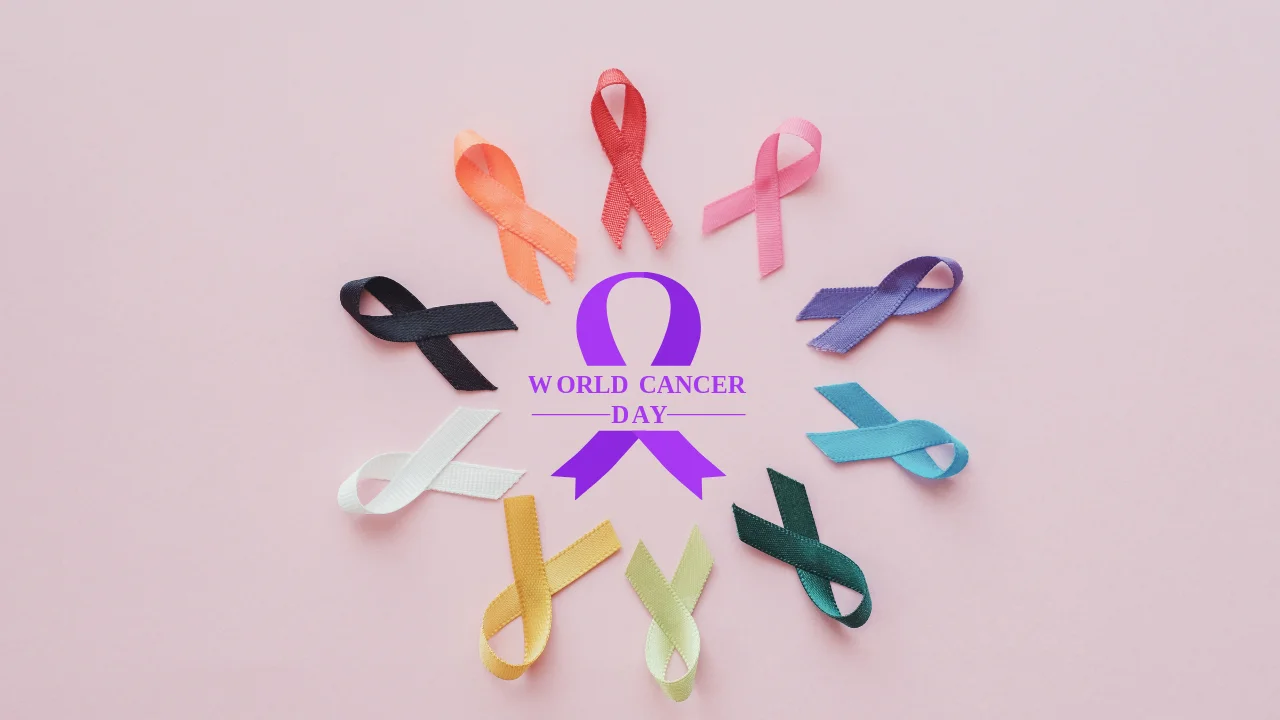World Cancer Day 2024
World Cancer Day, observed annually on February 4th, is a global initiative to unite the world in the fight against cancer. It aims to raise awareness about the disease, improve education, and catalyze personal, collective, and government action to reduce the global cancer burden.
World Cancer Day Theme 2024
The official theme for World Cancer Day 2024 is “Close the Care Gap.”
This theme emphasizes the inequities in access to quality cancer care across different populations and regions. It highlights the need for action to ensure that everyone, regardless of their background or circumstances, has access to the prevention, diagnosis, treatment, and palliative care they need when facing cancer.
The theme aims to bring attention to the disparities in:
- Prevention: Not everyone has access to information and resources to prevent cancer.
- Diagnosis: Early detection is crucial for effective treatment, but access to timely and accurate diagnosis can be limited for many.
- Treatment: Access to affordable and effective treatment varies significantly across different populations.
- Palliative care: Individuals living with cancer often lack access to adequate pain management and supportive care.
What is Cancer
Cancer is a complex and often misunderstood disease. It encompasses a large group of diseases that can affect any part of the body. It arises from the uncontrolled growth and division of abnormal cells that invade and destroy healthy tissues.
Understanding the Basics
- Cells: The basic building blocks of our bodies. In healthy individuals, cells grow and divide in a controlled manner.
- Cancer cells: These cells have undergone mutations that cause them to grow and divide uncontrollably, forming tumors.
- Tumors: Masses of abnormal cells that can be benign (non-cancerous) or malignant (cancerous).
- Malignant tumors: Can invade surrounding tissues and spread to other parts of the body through a process called metastasis.
Types of Cancer
- Carcinomas: Cancers that originate in the lining of organs, such as breast cancer, lung cancer, and colon cancer.
- Sarcomas: Cancers that develop in connective tissues, such as bone, muscle, and fat.
- Leukemias: Cancers that affect the blood and bone marrow.
- Lymphomas: Cancers that develop in the lymphatic system, which is part of the immune system.
Causes of Cancer
The exact cause of cancer is unknown, but it is believed to be a result of multiple factors, including:
- Genetics: Mutations in certain genes can increase the risk of developing cancer. These mutations can be inherited from parents or occur spontaneously during a person’s lifetime.
- Environmental factors: Exposure to carcinogens, such as tobacco smoke, radiation, and some chemicals, can damage DNA and lead to cancer.
- Lifestyle factors: Smoking, excessive alcohol consumption, lack of physical activity, and unhealthy diet are all risk factors for various types of cancer.
Symptoms of Cancer
Cancer can cause a wide range of symptoms, depending on the type and location of the cancer. Some common symptoms include:
- Unexplained weight loss or gain
- Fatigue
- Fever
- Pain
- Lumps or bumps
- Changes in skin or bowel habits
- Unusual bleeding or discharge
Diagnosis and Treatment
Cancer diagnosis involves a combination of physical exams, imaging tests (such as X-rays, MRIs, and CT scans), and biopsies. Once diagnosed, the type and stage of cancer are determined to develop an appropriate treatment plan.
Common cancer treatments include:
- Surgery: To remove the tumor and surrounding tissues.
- Radiation therapy: Uses high-energy radiation to kill cancer cells.
- Chemotherapy: Uses drugs to kill cancer cells throughout the body.
- Targeted therapy: Drugs that target specific molecules or pathways involved in cancer growth.
- Immunotherapy: Helps the body’s immune system to recognize and attack cancer cells.
Prevention
While some risk factors for cancer are not controllable, there are several things you can do to reduce your risk:
- Maintain a healthy weight.
- Eat a healthy diet rich in fruits, vegetables, and whole grains.
- Exercise regularly.
- Avoid tobacco smoke and excessive alcohol consumption.
- Get vaccinated against certain viruses, such as HPV and hepatitis B, which can increase the risk of certain cancers.
- Get regular checkups and screenings for cancer.
Living with Cancer
A cancer diagnosis can be overwhelming, but there are many resources available to help people cope with the disease and its treatment. These resources include support groups, counseling services, and financial assistance programs.
Cancer is a complex and challenging disease, but with early detection, proper treatment, and ongoing support, many people can live long and fulfilling lives. Research is constantly advancing, leading to new and improved treatments and giving hope for a future where cancer is no longer a threat.
History of World Cancer Day
World Cancer Day, observed annually on February 4th, boasts a rich history of raising global awareness about cancer, promoting education, and driving action to alleviate its burden. Here’s a glimpse into its evolution:
Early Steps
- 1933: The International Union Against Cancer (UICC) was founded in Paris, marking the initial efforts towards international collaboration in cancer control.
- 1990: The UICC created the World Cancer Day Steering Committee, further solidifying the concept of a global day dedicated to cancer awareness.
- 2000: The World Summit Against Cancer for the New Millennium was held in Paris. On February 4th, the event declared this date as World Cancer Day, officially launching its global recognition.
Spreading Awareness and Advocacy
- 2002-2003: The first official World Cancer Day campaign focused on the theme “Cancer can be cured,” emphasizing the importance of early detection and treatment.
- 2004-2005: The campaign shifted its focus to “Cancer prevention: dispel the myths,” highlighting the role of healthy lifestyle choices in reducing cancer risk.
- 2006-2007: The campaign theme “Together, let’s beat cancer” underscored the importance of collective action and solidarity in the fight against the disease.
- 2008: The World Cancer Declaration was adopted by over 100 countries, outlining a ten-year action plan for cancer control.
Evolving Themes and Continued Impact
- 2019-2021: The theme “I Am and I Will” focused on empowering individuals and communities to take control of their health and advocate for change.
- 2022-2024: The current theme “Close the Care Gap” emphasizes the need to address inequities in cancer care and ensure access for all.
Significance of World Cancer Day
World Cancer Day has made a significant impact in several ways:
- Increased awareness: It has raised awareness about cancer globally, dispelling myths and misconceptions and encouraging people to prioritize their health.
- Improved access to care: It has contributed to improved access to cancer prevention, diagnosis, treatment, and palliative care in many regions.
- Enhanced research efforts: It has fostered international collaboration in research, leading to discoveries and advancements in cancer treatment.
- Empowered communities: It has empowered individuals and communities to advocate for better cancer care and take charge of their health.
Way Forward
World Cancer Day continues to be a powerful platform for raising awareness, promoting action, and driving progress in the fight against cancer. As we move forward, the focus will likely remain on:
- Advocating for continued access to equitable cancer care for all.
- Promoting innovative approaches to prevention, diagnosis, and treatment.
- Empowering individuals and communities to take control of their health.
- Supporting research and development to find a cure for cancer.
By continuing to work together, we can build on the legacy of World Cancer Day and create a future where everyone has the opportunity to live a cancer-free life.
Other Days Related to Cancer
- Cervical Cancer Elimination Day of Action 2023
- National Cancer Awareness Day 2023 and Cancer Prevention
- The Welfare of Cancer Patients Day 2024
4th February 2024 Special Day
On the 4th of February 2024, World Cancer Day brings people together worldwide to combat the global scourge of cancer. This annual observance strives to heighten awareness, enhance education, and mobilize individuals, communities, and governments for concerted efforts to alleviate the burden of cancer. It serves as a powerful catalyst, uniting the world in the shared commitment to fight against this pervasive disease and foster a brighter, cancer-free future for all.
- Indian Bank Recruitment 2025 Out for 1500 Apprentice Posts
- Indian Bank Apprentice Salary 2025, Pay Scale, Salary Structure
- Indian Bank Apprentice Syllabus & Exam Pattern 2025, Check Details
- Railway RPF Syllabus 2024, Check Exam Pattern, Topic And Syllabus
- SSC JE vs RRB JE, Which Is Better? Know Detailed Comparison
- SSC CGL Study Plan 2025 For Next 25 Days With Tips, Tricks

Hello, I’m Aditi, the creative mind behind the words at Oliveboard. As a content writer specializing in state-level exams, my mission is to unravel the complexities of exam information, ensuring aspiring candidates find clarity and confidence. Having walked the path of an aspirant myself, I bring a unique perspective to my work, crafting accessible content on Exam Notifications, Admit Cards, and Results.
At Oliveboard, I play a crucial role in empowering candidates throughout their exam journey. My dedication lies in making the seemingly daunting process not only understandable but also rewarding. Join me as I break down barriers in exam preparation, providing timely insights and valuable resources. Let’s navigate the path to success together, one well-informed step at a time.






